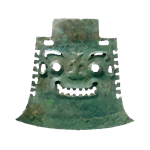Ismertető
Sun Tzŭ said: The art of war is of vital importance to the State.
It is a matter of life and death, a road either to safety or to ruin. Hence it is a subject of inquiry which can on no account be neglected.
The art of war teaches us to rely not on the likelihood of the enemy's not coming, but on our own readiness to receive him; not on the chance of his not attacking, but rather on the fact that we have made our position unassailable.
• "Impartial Judgments in the Garden of Literature" by Chêng Hou: —
Sun Tzŭ's 13 chapters are not only the staple and base of all military men's training, but also compel the most careful attention of scholars and men of letters.
His sayings are terse yet elegant, simple yet profound, perspicuous and eminently practical.
Such works as the Lun Yu, the I Ching and the great Commentary, as well as the writings of Mencius, Hsün Kʻuang and Yang Chu, all fall below the level of Sun Tzŭ.
• Tsʻao Tsʻao: —
Many books have I read on the subject of war and fighting; but the work composed by Sun Wu is the profoundest of them all.
In his treatment of deliberation and planning, the importance of rapidity in taking the field, clearness of conception, and depth of design, Sun Tzŭ stands beyond the reach of carping criticism.
• Lionel Giles: —
If one thing is more apparent than another after reading the maxims of Sun Tzŭ, it is that their essence has been distilled from a large store of personal observation and experience. They reflect the mind not only of a born strategist, gifted with a rare faculty of generalization, but also of a practical soldier closely acquainted with the military conditions of his time. To say nothing of the fact that these sayings have been accepted and endorsed by all the greatest captains of Chinese history, they offer a combination of freshness and sincerity, a cuteness and common sense ...


